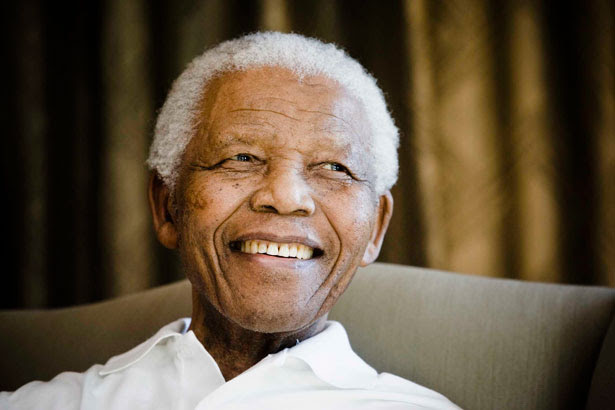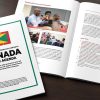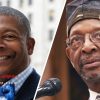Although most black South Africans revere Mandela and his party for defeating apartheid, many are realizing that fighting inequality and achieving full citizenship will mean taking on the ANC.

Former South African President Nelson Mandela in Johannesburg, South Africa, Tuesday, June 2, 2009. (AP Photo/Pool-Theana Calitz-Bilt, Pool)
I returned home to South Africa a few days before Nelson Mandela was readmitted to hospital. This is the fifth and longest period he has been under observation by doctors since last December, and many here are convinced this may be his final visit. Mandela has not been active in South African politics for at least a decade, but he remains a potent symbol of the promise of the “rainbow nation.” The anxiety is apparent—especially in the media: What will happen when Mandela goes? Andrew Mlangeni, who served more than two decades with Mandela on Robben Island prison, told a Sunday newspaper that South Africans had to release Mandela spiritually and let him go. Most ordinary South Africans have resigned themselves to that fact and are saying their goodbyes, though some wish he’d stay with us a bit longer. School children and clerics turn up at the hospital to pray for him and leave messages. Though some in the press wanted to turn the lack of detailed updates by government spokespeople on Mandela’s condition into a “press freedom” issue and a scandal, local TV and radio coverage is mostly somber.
Even as the vigil continues, South Africans debate Mandela’s legacy and the history he so powerfully embodies. For example, despite Mandela’s lifelong membership in the governing African National Congress, these days an opposition party, the Democratic Alliance (a largely white political party which governs Cape Town and the surrounding province and commands only 20 percent of the national vote) claims it—and not the ANC—is Mandela’s true heir. It has even released advertisements with Mandela’s image and have been pilloried for inventing history (though the campaign seemed to have galvanized their supporters). President Jacob Zuma, who is also the leader of the ANC, corrected them: “The way he is being portrayed by the DA is as if Madiba was born in 1994—there was no life before.”
But one can see why the DA cannot help but overreach. Mandela is the most recognizable figure in twentieth-century South African, and perhaps world, history. In the popular imagination, both at home and abroad, he is as close as our world gets to a saint. Mandela personifies the narrative of the righteous struggle against legal apartheid, as well as the supposed miracle of racial reconciliation at the twentieth century’s end. This is a tremendous story, and a good deal of it is true. South Africa today is dramatically different than the one Mandela re-entered from prison in 1990. It has a black government, a growing black middle class, vibrant media, stable and vital democratic freedoms (with three sets of free elections and counting) and a growing economy.
Mandela can take credit for convincing white South Africans of the virtues of liberal democracy, thus ensuring the economy’s stability in the wake of 1994, if at the cost of preserving the white population’s disproportionate wealth and influence. Subsequent presidents have continued in this vein. Despite an initially heavily armed white population (and the persistence of racist views among some whites), today race makes little political turbulence. To be sure, some whites gripe about discrimination and “reverse racism” and organize themselves in “civil society organizations” (like the Afrikaner-led organizations Afriforum and Solidarity, which, among other things, oppose renaming streets and affirmative action). But in general white South Africans have never been more prosperous, mobile and free.
A recent report by the South African Institute of Race Relations—a frequent critic of the ANC government—concluded that whites are actually doing way better than expected since the end of apartheid. A separate study revealed that the majority of CEOs and managers are still white, and Africa Check, a South African version of factcheck.org, corrected inflated statistics about white poverty (touted by Afrikaner interest groups): “The claim that 400,000 whites are living in squatter camps is grossly inaccurate. If that were the case, it would mean that roughly 10% of South Africa’s 4.59-million whites were living in abject poverty. Census figures suggest that only a tiny fraction of the white population—as little as 7,754 households—are affected.” So white South Africans are doing very well in post-Mandela South Africa, and many are therefore anxious about what will happen to them when Madiba passes.
This anxiety is due in part to the realization that transformation has been slow to come to the vast majority of South Africans. Mandela excelled at the rhetoric of the rainbow and reconciliation that still pervades South African public discourse, but he presided over a disastrous economic policy for the country’s poor, black majority. The result is that South Africa remains one of the most unequal countries in the world today by most measures. Inequality is still defined by race, despite the fact that inequality amongst blacks has also expanded. Since 1994, the number of South Africans living on less than a dollar a day has doubled, but so has the number of South African millionaires .
Successive South African governments (starting with Mandela) have been reluctant to address South Africa’s fundamental historical inequalities, whether by implementing any meaningful land reform or tampering with racial residential patterns. Though the government should be credited for massive public housing construction, most new housing and suburbs are still built on land far away from city centers or constructed next to existing racially segregated townships. Almost 280,000 families countrywide lack basic sanitation. In Cape Town, where the opposition Democratic Alliance governs, some of the poor have desperately resorted to dumping feces at the doorsteps of the provincial parliament or on the bodies of public representatives.
The ANC’s market-friendly policies began under Mandela, even though many associate such policies with Mandela’s successor, Thabo Mbeki. It was Mandela who in mid-1996 presented the government’s neoliberal GEAR policy (Growth, Employment And Redistribution) as “non-negotiable.” Although there continues to be conflict over economic policy within the ANC, as well as with its alliance partners in the trade unions and the Communist Party, and there are traces of a “development state” (a national healthcare plan, social housing, massive AIDS roll-out since 2009 and welfare grants), government still prioritizes the interests of business.
The poor know this, and though the majority of South Africans revere Mandela and the ANC for defeating apartheid, many are realizing that true citizenship means taking on the ANC. For many, the ANC has come to represent a callous government whose police evict them from already cramped and substandard housing, shut off their water, lock them up or murder them when they protest. In the most extreme case, in August last year, police shot thirty-four striking miners in the Northwest province; people here just say “Marikana” when they talk about the killings. One year earlier, in broad daylight, police murdered an activist, Andries Tatane, who had led protests over bad services in his small town in the Free State province.
Dissatisfaction is not new. In the early 2000s, Mandela’s successor Thabo Mbeki was the focus of frequent protests over service delivery, unemployment, poverty and inequality. ANC members and others worked successfully to unseat Mbeki, who was praised by business interests for his management of the economy. Instead they got Jacob Zuma, who although more personable than Mbeki, is hobbled by a messy private life and charges of corruption. Storms swirl around Zuma, but on a macroeconomic level, little changed under him too. For a while, Julius Malema, a bombastic and brash ANC youth leader, held center stage and threatened to bring economic inequality to the center of attention. Yet he fell out with Zuma and his support fizzled as stories emerged detailing his own problems with corruption and excess.
Still, impatience with Zuma’s government is growing. Not all protests take an organized form or are sustained over time, but they are always there—one can’t miss the din of protest about housing and evictions, over water, electricity and education. These movements frequently invoke Mandela as a symbol, even as they chide his government’s legacy. He is both an obstacle and an inspiration. Many participants are very young—barely alive when Mandela came out of prison or when he was elected president. Take Abahlali baseMjondolo, a slumdwellers’ movement outside Durban that protested evictions at the hands of the ANC-led city council, as profiled in a new film Dear Mandela. In one scene, a teenage leader, Mazwi Nzimande, tries to fire up the crowd. Nzimande denounces people who discriminate against shack dwellers and criticizes political parties. When, however, he shouts: “Down with the ANC party, down!” he is greeted with silence. Mandela’s party still has a powerful hold over most black South Africans. For many, in spite of its failings, it is still seen as the only organization that will be able to fundamentally restructure South Africa’s political economy. In the film, Nzimande sits down, momentarily defeated.
Nzimande’s colleague, Mnikelo Ndabankulu (in his early 20s), takes a different approach. Speaking after a fire that destroyed 200 shacks in his neighborhood, he responds to criticism by ANC and government supporters: “They say, ‘Why are these people marching because these times [of oppression] have gone. We are in a democracy. What are they marching for?’ [However] the real motive behind our struggle is this thing [pointing to conditions in his squatter community]. It’s not a matter of disrespecting the authorities. It’s being serious about life. This is not life.”
Then, referring to Mandela’s steadfastness when he was sentenced to life in prison in 1964, Ndabankulu says: “You don’t need to be old to be wise. That is why we think we need to show our character while we are still young so that when your life ends, it must not be like a small obituary that said, ‘You were born, you ate, you go to school, you died.’ When you are dying you must die with credibility. People must talk about you saying good things, saying you were a man among men, not just an ordinary man.”
Sunday, June 16, was National Youth Day, commemorating the day in 1976, when black students in Soweto rose up to resist forced instruction in Afrikaans, but also to protest conditions in their schools (at the time government spent R644 a year on a white child’s education, but only R42 on a black child). The movement spread countrywide and combatted the repressive political environment of the time (most were inspired by the Black Consciousness movement whose leader, Steve Biko, would be murdered by police the next year). Much has changed since then. Public education is now free in principle, government spending does not discriminate by race and no one is forced to learn Afrikaans. However, little has been done to improve black schools that are characterized by overcrowding, no electricity or water supply and dilapidated infrastructure.
The next day (a public holiday), I joined a march by a few thousand school children to Parliament. Equal Education, a NGO that has taken the minister of education to court over the conditions of the schools that most black South Africans attend, organized the march. (Full disclosure: I have been sending groups of New School students to intern at Equal Education every summer since 2012.) At a rally in front of parliament, one of the Equal Education leaders reminded protesters that they were meeting on a solemn occasion “as Mandela, the father of our nation lay dying and as we commemorate the Soweto Uprising led by students.”
It was inevitable that he would then make a direct connection between the march and Mandela, who in the wake of Soweto 1976 wrote from prison: “That verdict is loud and clear: apartheid has failed. Our people remain unequivocal in its rejection…. They are a generation whose whole education has been under the diabolical design of the racists to poison the minds and brainwash our children into docile subjects of apartheid rule. But after more than twenty years of Bantu Education the circle is closed and nothing demonstrates the utter bankruptcy of apartheid as the revolt of our youth.”
I wondered what Mandela would make of these protesters for whom freedom has meant unequal education and who now see the government he was part of willing into being, as an obstacle to them enjoying their full rights in the new South Africa. Perhaps he would recognize himself in them.
Sean Jacobs, a native of Cape Town, is on the faculty of The New School in Manhattan.
For more on the complex intersection of South African party politics, neoliberal development, and popular protest, check out Mark Gevisser on the Marikana massacre and the sad state of the ANC.












![AEO, Ras Kass, Nkechi Taifa, Kymrence Young & Tricky Trev.) (feat. Young RJ [Slum Village], Ras Kass, Nkechi Taifa & Kymrence Young)](https://ibw21.org/wp-content/uploads/2024/12/organizing-anthem-AEO-Agitate-Educate-Organize-1600x900-1-100x100.jpg)


